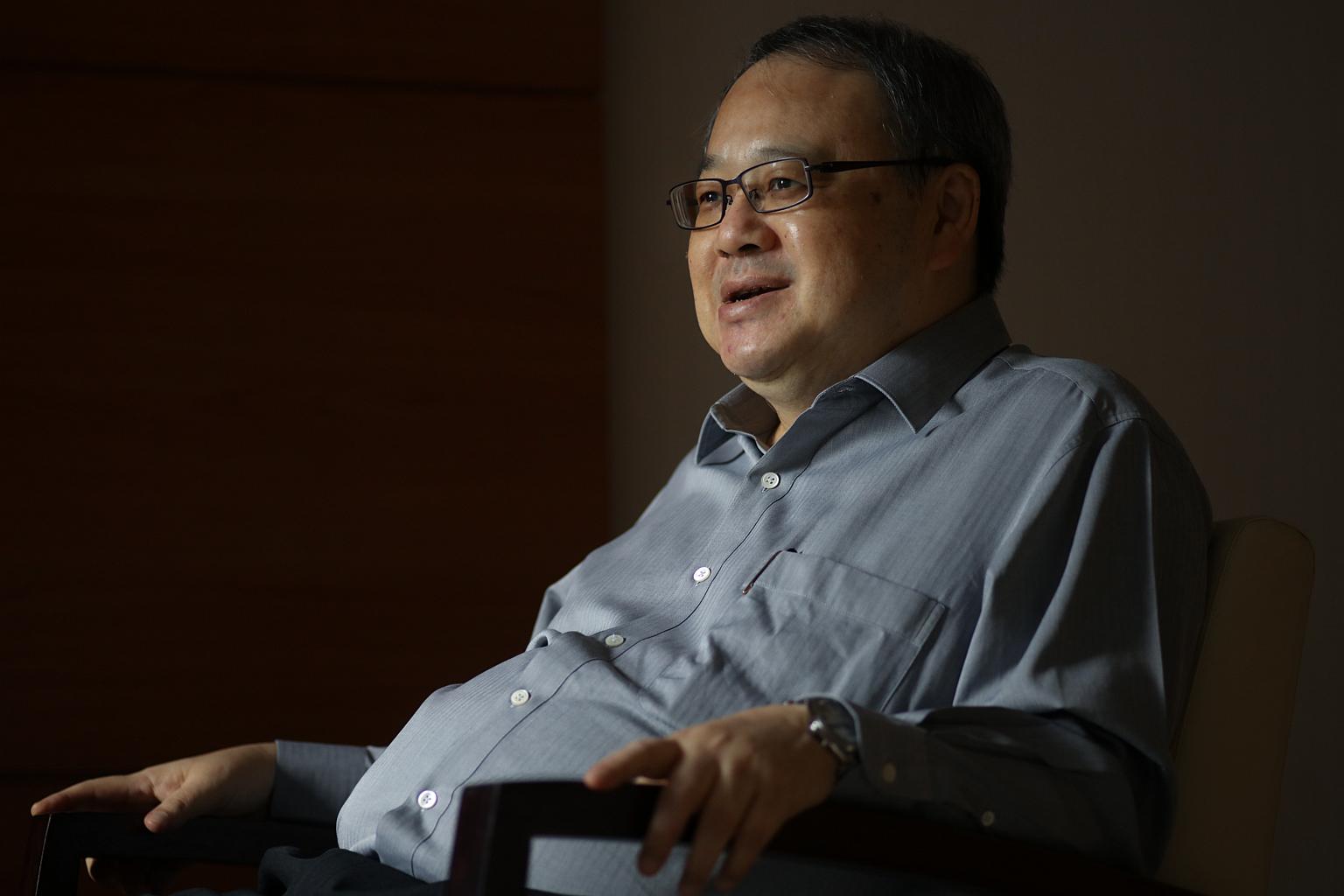Balance of trust tilts more towards individuals today, says former civil service head Peter Ho
Sign up now: Get ST's newsletters delivered to your inbox

Peter Ho pointed out that any efforts for government to dispel things like fake news is predicated on the level of trust that people have in the government in the first place.
PHOTO: DON WONG FOR THE STRAITS TIMES
SINGAPORE -When Singapore was struck by the fatal Sars virus in 2003, the Government was transparent in telling the peoplethe uncertainties it faced while providing essential information.
This led to a sense of trust that flowed both ways: Singaporeans trusted the Government for its integrity and effectiveness, while the Government trusted the people to deal with uncertainty as the outbreak unfolded.
But former head of the civil service Peter Ho wondered on Tuesday (Feb 6) whether the same degree of trust would prevail today in a similar crisis.
His doubt stems from the sea change in public discourse as social media and big data generate "greater contestation and scrutiny".
Faced with this new situation, governments have to take a more consultative and less hierarchical approach, he said in a speech on public trust at the annual conference of the Singapore Management University's Behavioural Sciences Institute.
This is especially important as the balance of public trust has tilted away from institutions towards individuals, he added.
One may choose to believe family, friends and even strangers who share the same outlook over experts, the elite or the authorities.
"Because of the confirmation bias that many of us are afflicted with...social media, in particular, now enables people to retreat into online echo chambers," said Mr Ho.
And as social media replaces mainstream media as the dominant platform for communication, this could lead to falsehoods spreading, he added.
The erosion of trust in the Establishment and institutions is most visible in events abroad, such as Britain's Brexit vote to quit the European Union and the shock electoral win of US president Donald Trump in 2016, he noted.
Some believe Singapore will not be spared from this global trend, Mr Ho said .
So, he was not surprised the Government set up a Select Committee last month to study the issue of deliberate online falsehoods and recommend strategies to deal with them to maintain trust.
But any effort by governments to dispel things like fake news hinges on the level of trust people have in the government in the first place. "If it is not there, it will not work," he said.
So, to maintain trust, governments need to adapt to "an environment of greater contestation and scrutiny, in which the balance of public trust at the focal point of government and its institutions is shifting to the man and the people", Mr Ho added.
The conference, attended by more than 300 people from the public, private and non-profit sectors, had panel discussions.
At one of them, Dr Kanwaljit Soin, a former Nominated MPs and founding president of a non-profit that promotes active ageing for women, urged the authorities to engender more trust in civil society organisations, especially activists calling for changes in policies and legislation, instead of viewing them as threats to stability.
"Tension between civil society and the authorities has to be accepted if one wishes to see real change and transformation," she added.
The perception that civil society exists because the Government has failed in some way also needs to be done away with, said Lien Foundation chairman Laurence Lien.


